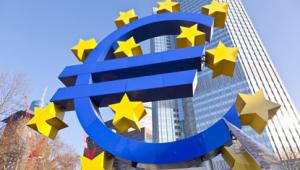By Judith Ugwumadu | 26 January 2015
Europe’s newly-launched quantitative easing programme has received mixed welcome from members of the European Parliament's economic and monetary affairs committee.
European Central Bank president Mario Draghi unveiled the programme on Thursday, which will inject €1.1 trillion into the eurozone’s economy in a bid to boost growth and tackle deflation.
Analysts broadly welcomed the asset purchasing scheme, which will see the ECB buy €60bn worth of public and private sector securities each month until at least September 2016.
However, reacting to the announcement, MEPs said the programme must not be seen as a way to avoid structural reforms to EU economies, particularly those in the eurozone.
Swedish MEP and committee member Gunnar Hökmark questioned whether QE would make Europe more competitive or boost investment.
‘We haven’t seen any trace of that so far,’ he said. ‘But it may mean that it is a little bit too easy for financing some things instead of doing the real things.’
German MEP Michael Theurer, who was a member of the committee until last August, said: ‘The quantitative easing will not lead to an increase of growth rates because if we compare it to the US, we have a lack of deregulation and liberalisation of labour and other markets.
‘Therefore, our focus is on structural reforms which must be done by countries like Italy and France.
However, German MEP Elisa Ferreira, also a committee member, welcomed the ECB’s move in reaction to figures for the currency bloc which showed prices had declined by 0.6% in December.
She said: ‘I am very glad this step has been taken by Mr Draghi. I think he had all the reason to take it.
‘He has a clear mandate: inflation should be around 2%, but the inflation is virtually zero. In certain member states it is even negative, and so the stimulus to the economy was absolutely necessary.’












